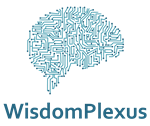Soft computing represents the certitude that the human mind has the capability to store and process information that is imprecise and lacks certainty.
In the current scenario, soft computing has developed in various domains as it solves the problem associated with current technology.
For example:
- Applied Mathematics
- Multimedia Processing
- Business and Economics
- Medical engineering, etc. and various other areas.
Hard computing has conventional intelligence and requires an analytical model. Hard computing generally requires prewritten programs and thus acts on a fixed set of instructions.
Hard computing needs predefined instructions and does not work beyond those lines. Its principle relies on certainty and flexibility. Soft computing is a new and modern approach that approximates systems.
Difference Between Soft Computing and Hard computing
1. Hard computing is best for solving the mathematical problems which don’t solve the problems of the real world.
Soft computing is better used in solving real-world problems as it is stochastic in nature i.e., it is a randomly defined process that can be analyzed statistically but not with precision.
2. Hard computing relies on binary logic and predefined instructions like a numerical analysis and brisk software and uses two-valued logic.
Soft computing is based on the model of the human mind where it has probabilistic reasoning, fuzzy logic, and uses multivalued logic.
3. Hard computing needs exact input of the data and is sequential; on the other hand, Soft computing can handle an abundance of data and handles multiple computations which might not be exact in a parallel way.
4. Hard computing takes a lot of time to complete tasks and is costly while soft computing tolerance of uncertainty and imprecision is estimated to achieve Machine Intelligence Quotient (MIQ) and lower cost. It also provides better communication.
5. Hard computing is best suited for solving mathematical problems which give some precise answers.
Soft computing resolves the nonlinear issues that involve uncertainty and impreciseness as it has human-like intelligence that can resolve the real-life issue.
6. Hard computing takes a lot of time in computing as it requires the stated analytical model and the model soft computing is based on is that of human intelligence.
Soft computing vs. Hard Computing in Tabular Form

Conclusion
In the current scenario, soft computing and hard computing are being used together in various industries. The aim is to develop a system that analyzes with high stability.
These things are particularly important for solving real-time applications. Soft computing provides usable solutions to complex problems, and it is also referred to as computational intelligence.
It holds the tolerance of half-truth and approximation that the traditional computing method does not have.
You may also like to read:
Applications of Soft Computing
10 Ways to Improve Cloud ERP with AI and Machine Learning
Fog Computing vs. Cloud Computing: What’s the Difference?

